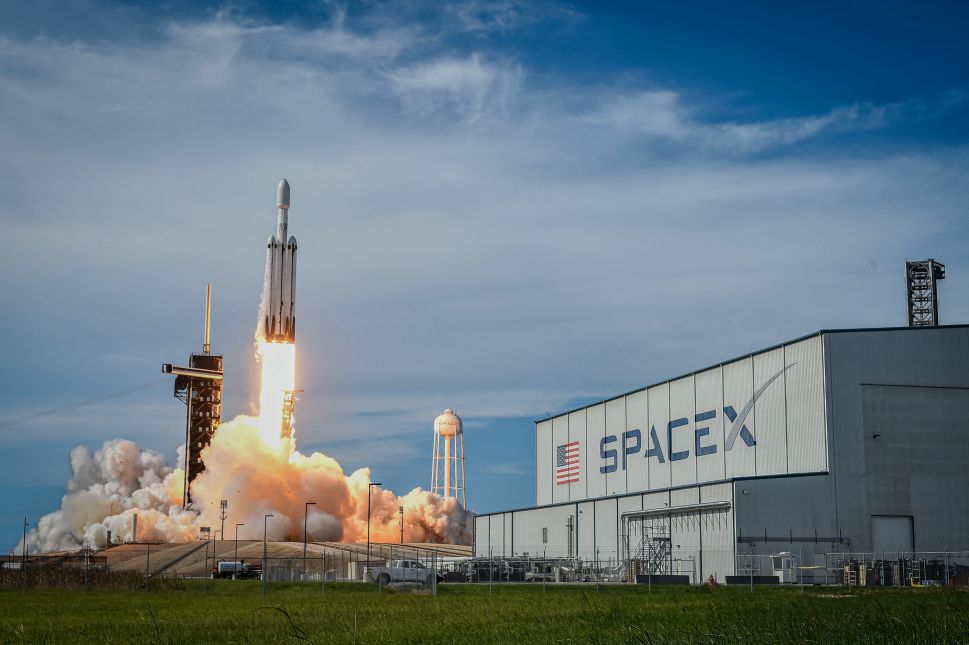SpaceX'” width=”970″ height=”646″ data-caption=’What will 2025 bring for Elon Musk’s SpaceX? <span class=”lazyload media-credit”>Miguel J. Rodriguez/AFP via Getty Images</span>’>
There’s no question that 2024 was a good year for SpaceX. The Elon Musk-helmed company became the world’s most valuable private company (worth a whopping $350 billion), broke its annual launch record and made pivotal progress in developing a rocket of unprecedented size and power. Given Musk’s ties to the incoming Trump administration, SpaceX will likely benefit from friendly federal faces via lucrative government contracts and relaxed regulation.
Here’s a look at what to expect from the aerospace company in 2025:
A boost in Starship tests
SpaceX is currently allowed to conduct five Starship test launches a year. In 2025, the company aims to increase this number to 25, according to a draft environmental assessment released by the U.S. Federal Aviation Administration (FAA) last month.
Frequent test launches are “critical” during the Starship program’s early phases, according to the FAA document. SpaceX’s proposed tests will launch from its “Starbase” site in Boca Chica, Texas and land at the same site or splash down in the Gulf of Mexico, Pacific Ocean or Indian Ocean. SpaceX has conducted six Starship test flights since 2022. During its latest test in October, the company achieved a major breakthrough when successfully retrieving Starship’s Super Heavy booster on land.
SpaceX’s eventual goal is to retrieve Starship’s upper capsule as well. Musk wants to “have 25 [Starship] missions a year—and in the next few years, 100,” said Kathy Lueders, general manager of SpaceX’s Boca Chica operations, during a conference in November. “The other day he was telling me, Kathy, I would love to launch a couple times a day,” she added.
Starlink revenue continues to rise
SpaceX’s Starlink business is projected to generate $11.8 billion in revenue next year, according to the market research firm Quilty Space—up from an estimated $7.7 billion in 2024. More than $7 billion will come from consumer services, while $1.3 billion could stem from hardware sales and another $3 billion from government contracts.
SpaceX has deployed around 7,000 internet-beaming Starlink satellites in low-Earth orbit and is reportedly seeking approval from the U.S. Federal Communications Commission (FCC) to send up an additional 30,000 satellites in the future.
This ambition will likely be met with pushback, given the environmental concerns swirling around the low Earth orbit crowded with satellites. In October, a letter signed by 100 space researchers asked the FCC to pause satellite launches in order to conduct an environment review of their harm to the atmosphere.
Starbase might become a city
Starbase, where SpaceX develops and tests rockets, is already home to hundreds of SpaceX workers. Next year, the company is looking to turn it into an official company town measuring at only 1.5 square miles and made up primarily of its own employees. SpaceX staffers recently filed a petition requesting an election to cast officials like Starbase’s first mayor, as reported by the New York Times, which noted that the new city would contain around 500 inhabitants.
“To continue growing the workforce necessary to rapidly develop and manufacture Starship, we need the ability to grow Starbase as a community,” said SpaceX’s Lueders in a letter accompanying the petition, where she noted that SpaceX already performs various civil functions in Starbase like road management and providing schooling for residents. “Incorporation would move the management of some of these functions to a more appropriate public body,” she said.
SpaceX-friendly federal policies
Musk has long been at odds with federal regulators like the FAA, which he often criticizes for delaying SpaceX’s progress. This could change under the Trump administration thanks to Musk’s close ties with the incoming President.
Musk himself has been granted unprecedented political influence and will co-head the newly created Department of Government Efficiency to scale back government spending. The billionaire has reportedly also asked Trump to bring some of his SpaceX employees into the federal fold and hire them as government officials—a move that would undoubtedly benefit SpaceX as it vies for billion-dollar NASA contracts.
A Musk ally has already been tapped by Trump to become NASA administrator. Jared Isaacman, the billionaire CEO of the payments processing firm Shift4 Payments, was nominated for the role in early December. A private astronaut who has twice flown to orbit twice with SpaceX, Isaacman’s vision for the agency is expected to prioritize the commercial space industry.

